
DiEM25 stands with Extinction Rebellion
The Democracy in Europe Movement 2025 stands with the rebels of Extinction Rebellion and residents of the UK who have taken to the streets to demand action on the climate emergency.
We condemn the draconian measures of the UK government to undermine their fundamental rights to assembly and peaceful protest — staples of a democratic society.
Environmental breakdown is accelerating, while governments go on with business as usual. DiEM25 joins Extinction Rebellion in calling for civil disobedience – as a basic democratic right – against ecological destruction.
It is through constructive disobedience that some our fundamental rights have been won, it is through constructive disobedience that our future can be won again.
We need a Green New Deal — in the UK, Europe and around the world.
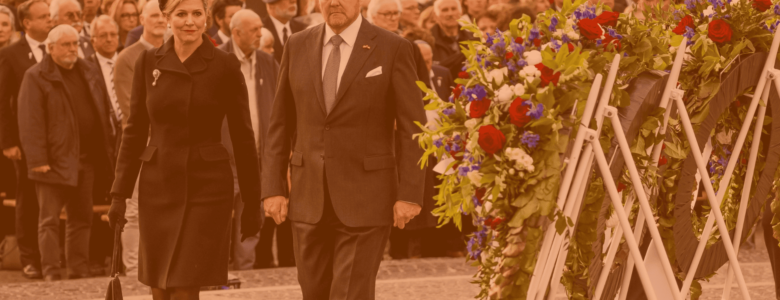
Remembrance Day in the Netherlands: What do you stand for?
Hopefully tonight, on Remembrance Day in the Netherlands, we will all pause for two minutes to reflect on the atrocities committed in the past, and say to ourselves: This, never again.
But what does “this” mean?
Does it mean we will never again allow a government to demonise a minority and normalise hatred toward them?
Does it mean we will never again permit a foreign government to imprison, starve, and exterminate millions of people because of their faith and heritage, without doing everything in our power to stop them?
Does it mean we will never again stand by as our own government not only downplays the suffering of a group of people, but even cheers on the war criminals?
All my life I’ve heard people ask the question: What would you have done during the Second World War? And everyone always answers: “I would have joined the resistance.” But what are those people doing now? Today they are silent for two minutes, and then?
Our two minutes of silence should not be just a symbolic tribute. Two minutes of thinking about what we never want to happen again are meaningless if we remain silent in the moments when it actually happens. Because it is still happening. All over the world, people continue to die because of the same false and narrow-minded ideas that caused so much pain and suffering in the past.
Silence is consent. So don’t ask what you would have done back then.
Ask: what are you doing now?
Are you still standing up for what’s right?
Then join DiEM25, a transnational movement that fights for equality, regardless of who you are or where you come from.
I’ll see you there.
Carpe Diem.
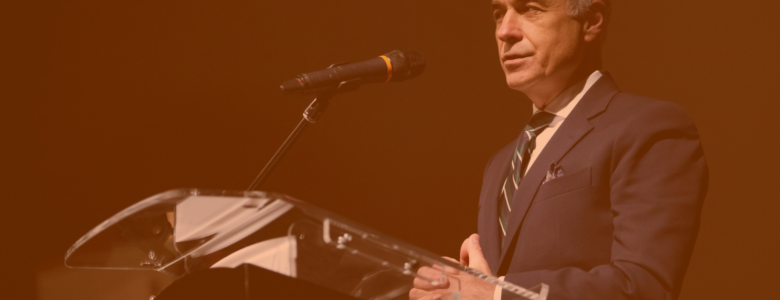
Romania’s sham election: Călin Georgescu ban exposes EU hypocrisy
As Romanians prepare to head to the polls on May 4 and 18, they do so under the shadow of a deep betrayal of democracy. Călin Georgescu, the candidate who won the first round of last year’s presidential elections, has been banned from running, under the flimsy and increasingly weaponised accusation of “Russian interference”.
Whatever one may think of Georgescu’s political positions, banning a candidate after an electoral victory strikes at the heart of democracy itself. It is the textbook definition of lawfare – using judicial and administrative measures to sideline political opponents that the establishment fears they cannot defeat at the ballot box.
The European Union and its mouthpieces frequently lecture others about “democratic values” and “the rule of law”. Yet, when a candidate emerges who dares to challenge NATO’s war agenda or questions the EU’s political orthodoxy, those very principles are thrown out the window.
Georgescu’s vocal opposition to the continuation of the Ukraine war – and by extension, to NATO’s aggressive expansion – clearly made him a threat, especially as NATO builds its largest military base in Europe on Romanian soil. His silencing is no coincidence; it is a political manoeuvre.
As continues to be proven, such acts of repression do not eliminate dissent – they radicalise it. By banning candidates like Georgescu, the establishment is only turbocharging the growth of far-right and anti-democratic forces. When citizens see their votes disregarded and the political process rigged, they will inevitably turn to those who promise to tear the system down – often with far more dangerous agendas.
The Romanian case is not isolated. Across Europe, we are witnessing a pattern, like with the recent conviction of Marine Le Pen, in a textbook case of ‘lawfare‘: when establishment-backed candidates falter, institutions are bent, laws are twisted, and elections are manipulated to preserve a decaying order.
If the EU wants to speak credibly about democracy, it must first confront the anti-democratic rot within its own ranks – starting with Romania’s grotesque exclusion of Georgescu from the upcoming election.
Democracy cannot be selectively applied. It must be defended for all, or it collapses for everyone.
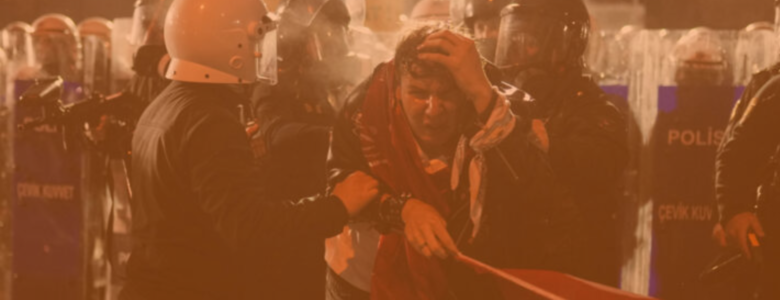
The silencing machine: How Europe and its allies are crushing journalists
From Berlin to Athens, from Ankara to Zurich, those who challenge the dominant narratives are silenced. On World Press Freedom Day, we provide a reminder on why we must all fight back
We were told that freedom of the press was a pillar of democracy. That it had been achieved – won long ago, enshrined in law, protected by institutions. But like democracy itself, press freedom has never truly arrived. It’s an ongoing struggle, not a trophy in a museum.
Today, in Turkey, Germany, Switzerland, Greece and beyond, this freedom is not only incomplete – it’s under full-scale attack.
In Turkey, journalism has become a crime scene. This spring, journalists Timur Soykan (BirGün) and Murat Ağırel (Cumhuriyet) were arrested, accused of blackmail and threats – but everyone knew the real reason: they had reported on corruption and state abuses tied to Istanbul’s opposition mayor, a political threat to Recep Tayyip Erdoğan’s regime. Their work exposed truths too inconvenient to be ignored. So the state did what it does best – it shut them up.
Elsewhere in Turkey, the tactics are more brutal. In March, seven Kurdish journalists were jailed for daring to investigate – and mourn – the deaths of colleagues killed in Turkish drone strikes. Their arrests weren’t just punishment – they were a message: Kurdish voices are disposable.
Other journalists face slower forms of state violence. Nurcan Yalçın and Derya Us were pulled from their homes in early-morning raids – not charged, not convicted – just harassed into silence. Travel bans, police reporting, surveillance: a soft suffocation of their basic rights.
And yet, they persist. In 2024 alone, 181 journalists were put on trial in Turkey. Fifty-eight were detained. Judges handed out over 24 years in combined prison sentences – not for violence, fraud, or hate speech, but for publishing.
But don’t think this is just Turkey’s problem.
In Germany, repression looks more polished, more bureaucratic – but no less dangerous. Melanie Schweitzer, a lawyer at the Federal Ministry of Labour, was fired in December 2023. Her offence? Publicly condemning Israel’s actions in Gaza and calling for Palestinian rights – views well within the bounds of international law, and shared by millions worldwide. But in Germany’s political climate, even mild dissent is treated as scandalous. Her dismissal made it clear: state employees are expected to remain silent — or side with power. Anything else could cost you your career.
In Switzerland, journalist Melissa Müller found herself repeatedly censored by her editors at Blick. Words like “apartheid” and “colonialism” were scrubbed from her articles. Critical stories on Palestine were spiked. Eventually, she left – and spoke out. In doing so, she revealed what many journalists across Europe already know but few dare to say: press freedom ends where Palestine begins.
And then there’s the ultimate form of censorship: assassination. In Greece, respected crime and corruption reporter Giorgos Karaivaz was gunned down in broad daylight outside his home in Athens in 2021. A killing that shocked the country – and Europe – but to this day remains unsolved. For years, Karaivaz investigated links between organised crime and law enforcement. He exposed uncomfortable truths. He paid the price.
Three years later: no convictions. No political reckoning. Just silence.
From Berlin to Athens, from Ankara to Zurich, those who challenge the dominant narrative – on war, on occupation, on state violence, on corruption – are silenced. Some with jail cells. Others with HR memos. Others still with bullets.
But the effect is the same: a journalism that flatters the powerful and buries the rest.
At DiEM25, we know that journalism isn’t a luxury. It’s the first line of defence in any functioning democracy. That’s why we stand with those who speak when it’s dangerous to speak – from Julian Assange, imprisoned for exposing war crimes; to Melanie Schweitzer, fired for her principles; to Melissa Müller, who walked away from her job rather than compromise the truth; to Giorgos Karaivaz, who gave his life in pursuit of it.
What do we want?
- A Europe where the press is actually free – not on paper, but in reality.
- Where telling the truth isn’t a risk, but a right.
- Where solidarity with Palestine isn’t a fireable offence.
- Where investigating corruption doesn’t end in murder.
- Where states don’t get to decide what journalists can and cannot say.
We want justice for those already punished, and protection for those still fighting.
Because if we don’t fight for press freedom now – while it’s under siege – we may not have the chance later.
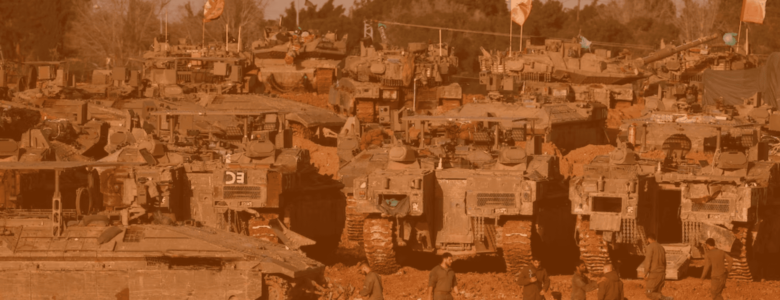
Tell Ireland’s Central Bank: Stop funding genocide in Gaza
Despite international rulings and mounting evidence of genocide, the Central Bank of Ireland continues to approve Israeli war bond sales across the EU
The International Court of Justice’s (ICJ) ruled in January 2024 that the claim of genocide in Gaza is plausible and specified provisional measures to protect Palestinian people under the Genocide Convention. It specified further additional provisional measures in March and May 2024. Since then, reports by Amnesty International, Human Rights Watch, and a UN Special Committee have all confirmed that genocidal acts have been undertaken by Israel. The Israeli military is now importing Gaza abuses into the illegally occupied West Bank.
States cannot claim they are unaware of this situation and, as soon as they are aware, they are obligated under international law to deploy all means reasonably available to them to prevent genocide. They become complicit if they provide aid and assistance that facilitates the perpetrators to carry out this crime.
Between the October 7, 2023 and January 2025, $19.4 billion was raised for the Israeli state through the issue of Israel “war bonds” and $4.49 billion of this amount was raised through two underwriters in the EU: BNP Paribas and Deutsche Bank. These bonds are marketed as supporting Israel in a time of war and are being used to raise funds to sustain its ongoing genocide against Palestinians and its wars in the wider region.
For Israel to sell its “war bonds” in the EU, the prospectus for these bonds must be approved by a Central Bank in an EU country. After Brexit, it is the Central Bank of Ireland (CBI) that carries out this role.
In Ireland people, including DiEM25 members, are supporting the Palestine Solidarity Campaign’s (IPSC) ongoing campaign targeting the CBI. They recently brought charges against CBI officials for complicity in Israel’s genocide. This campaign also has regular protests outside and occupations inside the CBI Head Office. In addition, workers at the CBI, Trade Unions, Student Unions, Community Associations, elected representatives at local and national levels and individual citizens are being made aware of the problem and are taking action to impress upon the CBI Governors, and ultimately the Irish Government, to stop the facilitation of these nefarious war bonds.
Although it is not possible for every concerned person in the EU to directly participate in these on-the-ground activities, each and everyone of us can play a very important role in this campaign for human rights and justice. As the CBI effectively acts as a branch of the European Central Bank (ECB) by enabling Israel “war bonds” to be sold across the EU, citizens/residents of EU countries can join in solidarity with this campaign and help bring the sickening complicity with Israel’s genocide to an end. To do this we are asking you as citizens/residents of an EU country to send the model letter (enclosed below) to the Governor and Deputy Governors of the CBI demanding that they end their role in funding Israel’s genocide.
If this campaign is successful, it will send a powerful message that citizens will not tolerate our governments’ and institutions’ complicity in genocide, war crimes and crimes against humanity, and further increase pressure on them to take concrete steps to end it.
Take action now
Model Letter to copy and paste (with some of your own wording preferences if possible), and email:
To: Governor of the Central Bank, Gabriel Makhlouf, at gabriel.makhlouf@centralbank.ie
cc: Deputy Governors at vasileios.madouros@centralbank.ie and derville.rowland@centralbank.ie
Subject: Irish Central Bank’s role in enabling the sale of Israel bonds in the EU
Dear Governor,
As a citizen/resident of an EU country, I am writing to express my deep concern that the Central Bank of Ireland (CBI) continues to enable Israel bonds to be sold in the EU.
The CEO of Israel Bonds, who is a member of the international board of directors, made plain in a television broadcast on 16 October 2023 that one of the purposes of Israeli government bonds being purchased by people around the world is to support the “war campaign”.
This is the same “war campaign” of which: the International Court of Justice’s (ICJ) ruled in January 2024 that the claim that Israel is committing genocide in Gaza is plausible; reports by Amnesty International, Human Rights Watch, and a UN Special Committee since the ICJ ruling in January 2024 have all confirmed that genocidal acts have been undertaken by Israel; and the International Criminal Court (ICC) has concluded that crimes against humanity and war crimes have been committed, resulting in arrest warrants being issued against the Israeli Prime Minister and former Defence Minister.
States, organisations and individuals have obligations not to provide aid or assistance to “war campaigns” where there is evidence of a plausible risk that genocide is being committed, or crimes against humanity or war crimes are being committed.
It is my understanding that the prospectus documentation that the ICB continues to approve withholds important information. It does not clearly state that the State of Israel, the issuer, is raising money, at least in part, to support a “war campaign” and the risks associated with this specific “war campaign”.
Without this information, investors may not realise that by buying Israeli bonds they are at risk of aiding Israel financially to undertake a “war campaign” which the ICJ considers is plausibly genocidal and in which the ICC deems Israel to have committed crimes against humanity and war crimes.
I therefore respectfully demand that you ensure that all measures at the CBI’s disposal are taken, as a matter of urgency, to end this situation and end the CBI’s role in enabling the sale of Israel bonds within the EU.
Yours sincerely,
Name:
EU country of residence/citizenship:
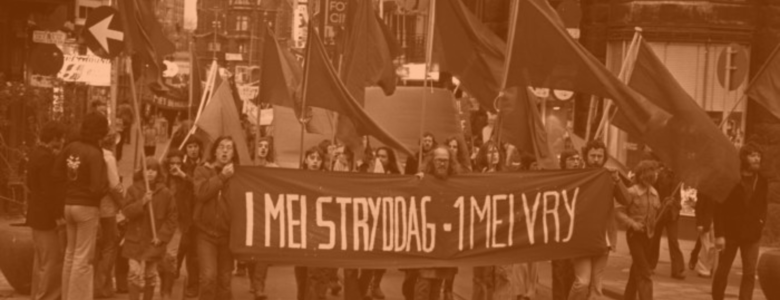
Labour Day: More than a commemoration – a call to action
On International Workers’ Day, DiEM25 calls for fair wages, democratic workplaces, and a Europe that puts people before profit
On May 1, we honour the global struggle for dignity, justice, and workers’ rights. For DiEM25, International Workers’ Day is not a tradition of the past but a powerful reminder of the need for collective action – and of the urgent demand for change, especially today.
A history of struggle – including in the Netherlands
May 1 originated in the international fight for the eight-hour workday, most famously marked by the bloody Haymarket Affair in Chicago in 1886. The Netherlands has a rich May Day tradition as well. In 1890, International Workers’ Day was celebrated for the first time in the country, led by Ferdinand Domela Nieuwenhuis and the Social Democratic League. What began as a demonstration of solidarity became an annual day of action, hope, and political awareness.
Yet May 1 has never been recognised as an official holiday in the Netherlands – a reflection of the state’s longstanding reluctance to acknowledge workers’ struggles. Even today, the Netherlands remains one of the few European countries where May Day is not a public holiday.
The modern workers’ struggle
The hard-won gains of the 20th century – the five-day workweek, the minimum wage, social protections – are once again under threat. Flexibilisation, outsourcing, and platform capitalism have led to growing precarity, especially for young people, migrants, and women. While corporate profits soar, wages stagnate. Union organising is discouraged. Social safety nets are being dismantled.
In the Netherlands, we see a decline in permanent contracts and growing pressure on workers’ purchasing power. Meanwhile, public services are being hollowed out, and basic economic security is treated as a luxury. Rising inequality and the climate crisis expose an economic system that is failing both people and the planet.
DiEM25’s vision: A social and democratic Europe
DiEM25 envisions a radically different Europe: one that is social, sustainable, and democratic. In this Europe, work is not treated as a cost to be minimised but as the foundation of human dignity.
May 1 belongs to us – so does the future
May 1 is not a relic of the past, but a day of international solidarity and renewed resistance. It is a day not only to look back, but to look forward. As long as inequality, exploitation, and insecurity exist, Workers’ Day remains deeply relevant.
We call for:
- A European and national living wage
- Full rights and protections for all workers, including freelancers, migrant workers, and gig workers
- A shorter working week with full pay, to promote well-being and sustainability
- Democratisation of the economy, with worker participation and cooperative ownership
- A fair tax system, where the wealthy and multinational corporations pay their share
As DiEM25, we demand that our governments recognise Workers’ Day as a public holiday. We have laboured, we have toiled, and we have fought for this day. While we celebrate obsolete monarchs, our governments continue to deny workers the recognition they deserve as the real producers of value in our economies.
DiEM25 calls on you to reclaim this day. Gather, organise, and help build a Europe rooted in dignity, justice, and true democracy.
The struggle is not over – but the future is ours.
Carpe DiEM!
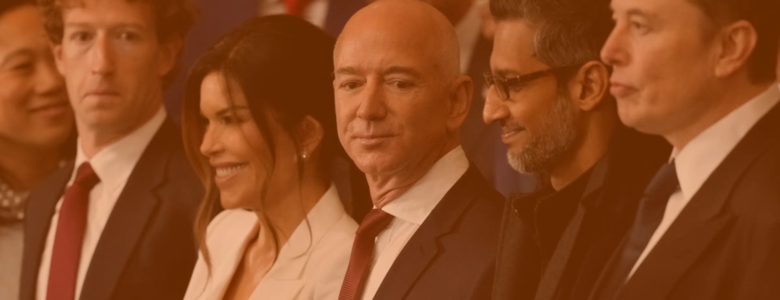
May Day against the billionaire class: For a Europe that works for all
A call to action this May Day: defending workers’ rights, empowering democracy, and challenging billionaire-led exploitation
Every year on May 1, the world celebrates the great holiday of all workers – International Workers’ Day, or May Day. This day has its roots in the late 19th-century labor movement and was originally tied to the struggle for better working conditions and shorter working hours. Since then, it has come to symbolise global workers’ solidarity in the fight against exploitation, coercion, and oppression, and for a truly democratic society – politically, socially, and economically.
Today, this spirit of international unity remains significant. Approximately 516 million workers – about 17 percent of the global workforce – are members of trade unions. However, immense pressures persist. The policies of multi-millionaire and billionaire capitalists, especially “cloud capitalists” like Elon Musk and Jeff Bezos, are eroding worker rights. Wage suppression, longer hours, insecure employment, and increasingly harsh working conditions are becoming the norm. On top of this, division is sown based on ethnicity, nationality, or other social factors. Many workers are forced to flee their homelands due to war, environmental disasters, or economic hardship—yet are simultaneously exploited and scapegoated in their new communities.
DiEM25 are endeavouring to counter these false narratives of the oligarchs used against workers, and are putting forward policies to point in the direction of a just and more democratic society to achieve human rights equally for all. A very relevant policy for this is our GNDE Green Jobs Policy, and how it relates to our six Policy Pillars.
Two of the Policy Pillars – Democratic Europe and Open Europe – relate specifically to how cooperative workers’ ownership and control of enterprises can facilitate better democracy, more equality and a sense of unity among and between workers no matter their ethnic, cultural or national background.
Democratic Europe
This policy is distinctive in that it focuses not on gaining power for a party or donor, but on empowering individuals and society through true democracy. Today, exploitative practices dominate, and ‘democratic’ institutions are often controlled by the very wealth they enable. That wealth is produced by workers—who are then manipulated by the institutions their labor sustains. A viable path forward is to give workers the democratic right to own and control their workplaces. If widely adopted, this would redistribute power and wealth, fostering a more equal society and deeper democratic engagement. Democracy in the workplace builds democratic culture more broadly—educating people on its value and practice. Both public and private enterprises could be made accountable to communities through citizen assemblies, putting real power in the hands of the people.
Open Europe
A significant driver of support for xenophobic or anti-migrant policies is the fear of job competition. By eliminating exploitative labor practices through workplace democracy, we can remove this fear. Democratic enterprises do not seek cheap labor to maximise profits; they view migrant workers not as threats, but as partners and equals. Shifting away from monopolistic corporations will strengthen local economies and create meaningful, fair employment. In democratic workplaces, migrant workers would have equal say and full protection, allowing them to participate in their communities without fear of exploitation.
On this May Day 2025, guided by DiEM25’s vision and policies, we look forward to a future in which the wealth created by our collective labor benefits all – not a handful of ultra-rich men, but the many who work. “Workers of all countries, unite” remains a rallying cry worth repeating – because there is still a world to win, and a humanity to prevail.

Labour Day 2025: Our call for democratic work and economic justice
As the world marks Labour Day, DiEM25 stands in solidarity with workers everywhere – those in factories and offices, on farms and shop floors, behind screens and on picket lines. May 1 is not only a moment to reflect on past victories but to demand a fairer, more democratic future for work across Europe and beyond.
Work as we know it is changing – quickly. Yet the structures that govern it are stuck in a bygone era. Gig platforms erode basic protections, wages stagnate despite rising productivity, and corporate power continues to outpace democratic control. This is why we believe the time has come for a transformation in how we understand and organise work.
At the heart of our vision is a simple, powerful idea: democracy shouldn’t end at the workplace door. Just as every citizen has a vote in political life, so too should every worker have a say in the decisions that affect their labour. We advocate for the gradual introduction of workplace democracy – a more inclusive approach where workers participate in shaping the direction of their companies. Not through top-down mandates, but by empowering employees to collectively govern the spaces where they spend much of their lives.
To make this shift possible, cooperatives must be at the forefront of economic renewal. From agriculture to tourism, and even in banking and high-tech industries, cooperatives show that businesses can be both efficient and equitable. We support policies that promote the cooperative model, expanding its reach into sectors traditionally dominated by extractive corporate structures.
But democratic work is also about protecting and advancing workers’ rights. That’s why we call for stronger European-level labour protections and the creation of new rights to match today’s realities – including protections for platform workers, digital nomads, and those in precarious employment.
Finally, we propose the development of labour exchanges – public institutions where workers can organise, access opportunities, and collectively bargain. These exchanges would serve as hubs of solidarity and coordination, enabling workers to build power together in a fragmented economy.
This Labour Day, we reaffirm our belief that work can be more than survival – it must be dignified, democratic, and just.
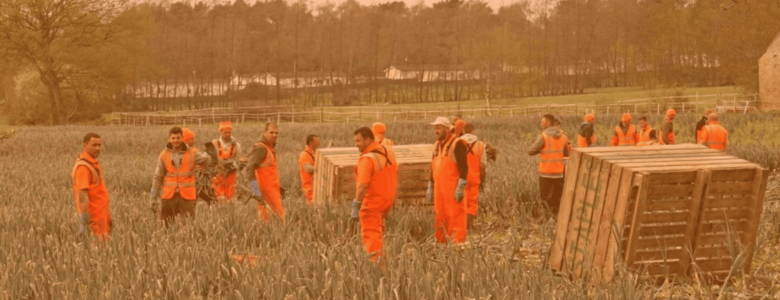
Europe runs on migrant labour: It’s time to respect it
On Labour Day, DiEM25 demands dignity, rights, and justice for all workers, regardless of origin
They pick the fruit we eat, build the homes we live in, clean the hotels we stay in, and serve our food in restaurants across Europe. Migrant workers are everywhere – powering entire sectors, sustaining the economy, and holding together societies that depend on their labour. But what do they get in return?
Exploitation. Invisibility. Precarity.
Whether fleeing war, seeking a better life, or simply trying to survive, migrants in Europe face a system stacked against them. They are offered the jobs no one else wants: back-breaking labour with long hours, low pay, and no protection. Housing, if available, is often overcrowded, overpriced, and barely habitable.
And for those without regularised status, the situation is even more dire. No rights. No safety net. No voice. Employers know this – and they take full advantage. Wage theft, threats of deportation, and unsafe conditions are rampant, while governments often look the other way.
This isn’t a glitch in the system. It is the system – a shadow economy built on fear, silence, and institutional neglect, benefiting those at the top.
DiEM25 says: Enough is enough
We refuse to accept a Europe that builds its wealth by crushing its most vulnerable workers. Migrant workers deserve the same rights as everyone else. Full stop.
That starts by dismantling the racist, bureaucratic barriers that divide people into categories: “good migrants” and “bad migrants,” “economic” versus “political,” “legal” versus “illegal.” These labels serve only to dehumanise.
Here’s our vision for change:
End arbitrary migration categories
Scrap the “safe third country” and “first country of asylum” doctrines. Rights should depend on shared humanity, not bureaucratic classifications.
Equal rights at work
Migrant workers must have the right to unionise, access pensions and healthcare – including mental health support – and live in safe housing. No exceptions.
Democratic participation
If you live, work, and contribute here, you should have a say – in your workplace and at the ballot box.
Freedom of movement and access to justice
Migrants must be able to move freely within Europe and access free legal support. Justice cannot be a privilege.
Real opportunities, not empty promises
Recognise foreign qualifications. Provide free language and vocational training linked to real employment. Invest in intercultural skills to foster true inclusion.
Europe’s migration policies are broken – and they’re breaking lives. DiEM25 is fighting to rebuild them from the ground up, guided by solidarity, dignity, and justice.
Because migrant workers aren’t a problem to solve. They’re part of the solution. And they deserve better – as do we all.

The AI revolution is here: How activists must use it to confront power
AI is advancing faster than most of us can process – and it’s already changing how we work, live, and organise. Tools like ChatGPT, even in their free versions, now handle everything from writing and image generation to translation and research. For €20 a month, the full version offers even more – and the implications for activism and political organising are profound.
So how are people using it to advocate for causes, push for change, and challenge power?
Here’s what I found, along with a few ways I’ve been using it myself. And at the end, some thoughts on what this all means.
Content creation
AI is already making written material for campaigns. A few weeks ago, a single activist in the US used ChatGPT to produce the literature for an entire movement against Walmart.
But as the models have evolved to include image generation, movements are also using AI to make creative materials. Like posters, flyers, social media graphics or memes. Make me an image of a group of young protesters uniting, in the style of a vintage poster.
The hard right, by the way, are all over this.
Message tailoring and targeting
Many organisers use AI to scale up their efforts by tweaking their materials for different audiences. They’ve successfully used AI to break down language barriers. (Old school translation teams are now much less necessary.)
But organisers can also use AI to target messaging beyond language — rewrite this manifesto for an older audience — and massively extend their reach.
Research
A lobbyist friend told me how ChatGPT streamlines her entire workflow.
The chatbot first identifies weak spots in her clients’ policy proposals, and proposes edits to make them tighter. Then, it provides lists of decision makers that she could be reaching out to. And finally, it gives her messaging tips based on the public statements and pressure points of those decision makers.
Personally, ChatGPT helps me with background research for the livestreams and interviews for DiEMTV. It’s a real time-saver.
Brainstorming and campaign planning
But this, dear friends, is the part where AI still blows me away: developing campaign plans. I sense these tools are being massively under-used here.
An example. Last week, I saw polling on how public opinion around Europe has cooled on the Israeli state since October 7. So I asked ChatGPT how to push it further, widening the Overton window to enable criticism of Israel’s policies in mainstream discourse.
A few prompts later, it gave me a full media and influencer campaign — targets, messaging, timelines, metrics, even historical precedents. It wasn’t perfect. But it was a better starting point than most teams could draft in days.
The bottom line: if you’re an organiser who’s jumping straight to execution without a plan, you’re wasting your time. But if you’re planning without using AI, you’re wasting even more.
Final thoughts
- Boy, that playing field is getting levelled. For now, we have access to the same superpower as political elites and Silicon Valley billionaires. But I doubt that will last forever. Use them while you can.
- For research and planning, ChatGPT’s Deep Research is the killer app today, and that’s included in the €20/month subscription. As of writing, you get 10 queries. It’s worth every cent.
- Yes, AI can plan, draft, and even automate. But it’s still on us to think critically and act. Using it as an assistant, keeping its content at arms length = good; outsourcing your thinking to it entirely = very bad. (Sam Kahn has some interesting thoughts here.)
- Since AI is about to upend everything, why aren’t we teaching kids how to use it properly? Especially, you know, how not to lose themselves in it?




